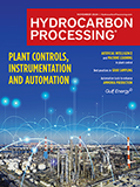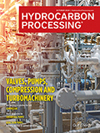Producing plastics from feedstocks other than oil
Total Petrochemicals has successfully demonstrated UOP technology that will enable the use of feedstocks other than petroleum to produce plastics and other petrochemicals.
A demonstration unit built by Total Petrochemicals at its complex in Feluy, Belgium, used UOP/Hydro MTO methanol-to-olefins technology to convert methanol to ethylene and propylene. The propylene was then successfully converted to polypropylene product. This demonstration proves that propylene produced from methanol at a semi-commercial scale is suitable for plastics production. Methanol is commonly produced from natural gas and coal.
"This success demonstrates that the UOP/Hydro technology can produce high-quality propylene, one of the major building blocks for plastics and petrochemicals, from alternative feedstocks," said Peter Piotrowski, senior vice president and general manager of UOP Process Technology and Equipment. "This technology gives petrochemical producers new, viable alternatives to the use of petroleum by enabling the use of methanol derived from sources such as natural gas, coal or biomass."
The demonstration unit has run consistently for more than 150 days since its start-up last year and has met product yield expectations. The unit has processed up to 10 metric tonnes per day of methanol to produce the light olefins ethylene and propylene, which are basic building blocks for many petrochemicals, including plastics.
"This proves that the technology built and operated by Total Petrochemicals in conjunction with Honeywell's UOP opens the way to very efficient production of polyolefins based on methanol from alternative feedstocks such as coal, natural gas or biomass," said Eric Duchesne, the head of Total's MTO project.
The demonstration plant integrates MTO process technology with the Total Petrochemicals/UOP Olefin Cracking Process (OCP). Use of the Olefin Cracking Process, jointly developed by Total Petrochemicals and UOP, will boost the total yield of usable ethylene and propylene while minimizing hydrocarbon byproducts. The OCP unit is scheduled to start up later this year after initial testing of the MTO unit is completed.
The demonstration plant was designed to assess, on a semi-commercial industrial scale, the technical feasibility of the integrated MTO and OCP processes with full product recovery and purification. These combined technologies can provide the highest yields available for producing light olefins from methanol. The unit is the world's first application of these combined technologies, which will help diversify feedstock sources for plastics production.






Comments